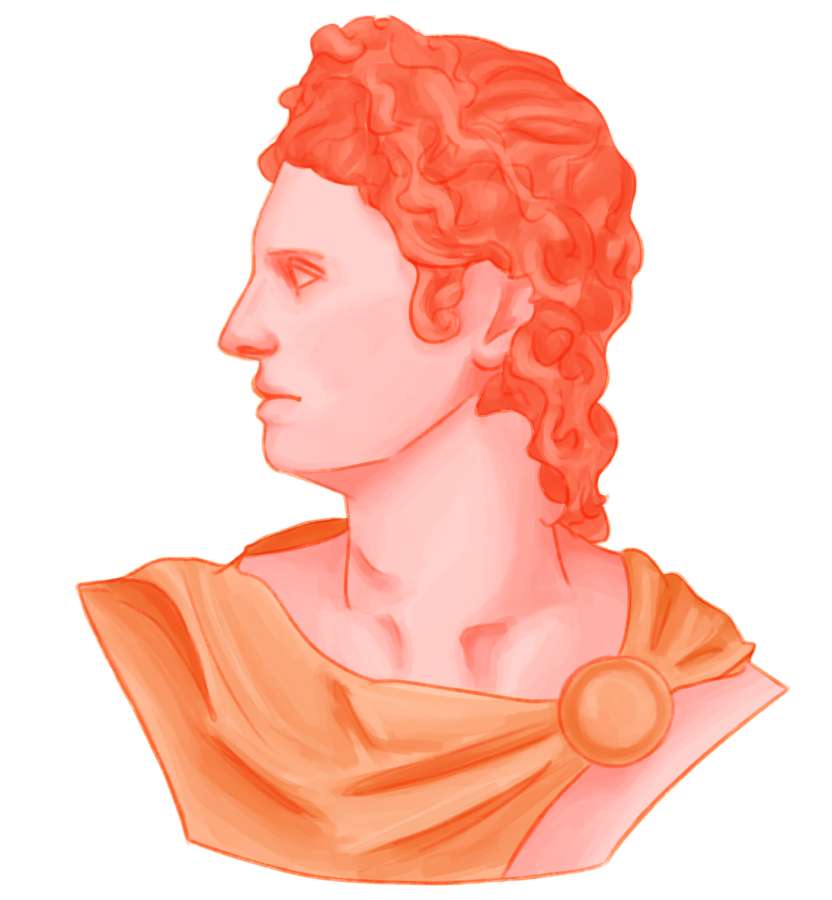Need a Pick-Me-Up? Roman Emperor Shares Advice
February 17, 2023
Upon hearing the term “stoic,” many high schoolers might picture a gruff, no-nonsense Viking staring off a stormy cliff. This is how Stoicism is depicted in pop culture: a dominating mind and suppressed emotions. In reality, this ancient philosophy was designed to make us happier, wiser, and more resilient – in essence, the best version of ourselves.
Originating in Ancient Greece, Stoicism was promoted by legendary emperors and philosophers such as Marcus Aurelius, Seneca, and Epictetus. Far from outdated, Stoicism has influenced the lives of US presidents, entrepreneurs, and writers across time. Stoicism is complex and multifaceted, but can ultimately be described by four values: courage, temperance, justice, and wisdom. What’s more fulfilling than being brave, moderate, truthful, and doing what is right?
The first tenet is courage in response to everyday struggles and monumental challenges. Amidst the intense pressure of ancient political life, Roman emperor Marcus Aurelius treated hardship as an opportunity. This does not mean ignoring the bad in favor of toxic positivity – instead, Stoicism asks us to truthfully examine life’s hard times for what they are and learn what we can. By treating difficulty as a chance to answer questions and test our courage, we build persistence. Finding the mental power to stay standing in the face of negative experiences is bravery in itself. Aurelius said the key to cultivating courage was mental resilience. In his widely-published journal, “Meditations,” he writes a reminder to himself: “you have power over your mind – not outside events. Realize this, and you will find strength.”
There are times where forcing your way through your issues is not the best strategy, however. In comes temperance: the balance of doing things in the right amount, in the right way. In addition to power over most of Europe, Marcus also had a short temper. In “Meditations,” he scolds himself to “stop allowing [his] mind to be a slave, to be jerked about by selfish impulses.” Although Aurelius describes it quite harshly, temperance is simply a call to notice what we do too much or too little of. Besides obvious applications to physical and mental health, it also sheds light on how to interact with others. How much of your time and energy do you invest in your relationships? Practicing temperance can build what the Ancient Greeks called kharis – an equal give-and-take of love that leaves both parties more fulfilled.
The principle of justice is perhaps the most difficult to understand. Stoics define justice as seeing the world through an unfiltered lens. Sounds hard, right? Developing an inner sense of justice involves a lot of introspection and objectivity. Do you need to apologize? Are you overreacting? Is it fair or unfair? In a world of grey, the Stoics aimed to cultivate action according to an inner sense of truth. Journaling and discussing with friends or even a therapist can help sort out biases, intrusive thoughts, and difficult feelings.
Wisdom ties all principles together. Stoics believe wisdom arises from learning and understanding, speaking carefully and listening intently. In addition to correctly perceiving information, wisdom is about finding the right kind. What narratives are you choosing to surround yourself with? Awareness of what you know (or don’t know) is key to living an informed and intentional life.
Let’s be honest: Marcus was a tad intense. While it is impossible to adhere 100% to Stoic ideals, honing your inner courage, balance, and truth can make life all the more fulfilling.




















